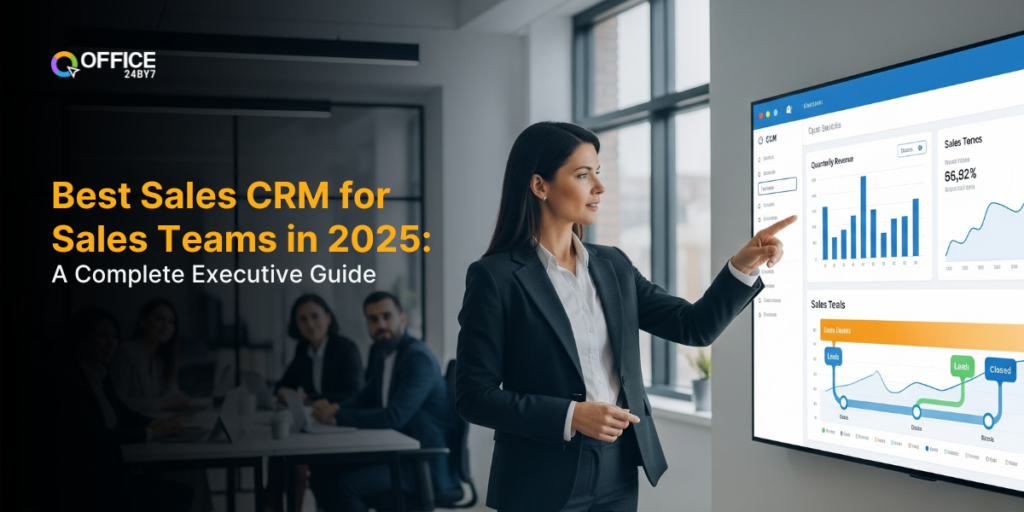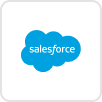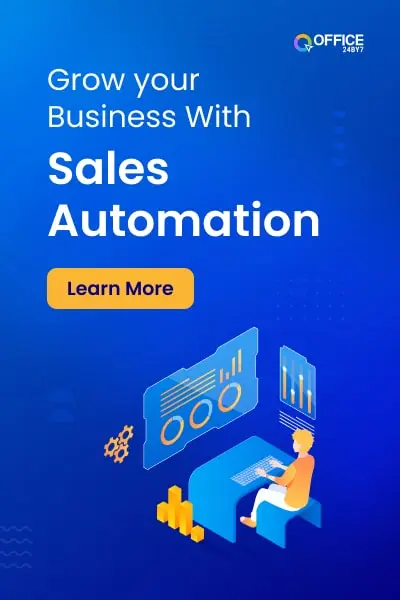
Not sure if this blog on Sales CRM contains quality information?
Try our 1-minute short audio summary to decide. 🎧
Sales in 2025 aren’t what they used to be. Buyers are more informed, interactions are spread across multiple channels, and teams are expected to close deals faster than ever. This fast pace and complex environment, spreadsheets, manual tracking, and siloed tools simply can’t keep up. This is why sales teams require an effective Sales CRM that organizes data and actively assists in converting leads into customers.
This guide is for everyone who is either evaluating their current CRM or planning to adopt a new one. We’ll explore what Sales CRM does, why it’s essential, the features that truly matter, and which platforms are leading the market in 2025, with a special focus on Office24by7, a platform built specifically to simplify and scale sales operations.
- Understanding Sales CRM: More Than Just Contact Management
- Why Your Sales Team Needs a Sales CRM in 2025
- Evaluating Sales CRM Pricing and Long-Term Value
- Top Sales CRM Platforms for 2025: What the Market Looks Like
- Sales CRM Implementation and Best Practices for Success
- Why Office24by7 Is Gaining the Trust of Sales Leaders
- Conclusion: A Sales CRM That Supports, Not Slows Down
Understanding Sales CRM: More Than Just Contact Management
At its core, sales CRM is a platform that helps businesses manage their interactions with leads and customers throughout the sales journey. While earlier CRMs functioned as databases, today’s systems have evolved into full-fledged revenue operations platforms.
Modern CRMs are designed to do far more than store contact information. They guide your team through every stage of the sales funnel, from the first touchpoint to post-sale engagement. They track communication, manage deals, assign tasks, automate follow-ups, and generate reports. And they do all this while integrating seamlessly with everyday tools like email, calendars, and phone systems.
The right CRM centralizes everything your sales team needs, allowing them to focus less on admin and more on building relationships and closing deals. Whether your team operates in-office, remotely, or in the field, a CRM ensures that everyone stays aligned and informed. Let’s find out why it is important for your sales team to have an all-in-one CRM solution.
Why Your Sales Team Needs a Sales CRM in 2025
Sales today is a high-stakes game. Leads come in through websites, calls, social media, and messaging apps. Expectations for quick responses are the norm. Agents juggle dozens of follow-ups, meetings, and tasks, often across multiple systems. Without a centralized CRM, leads fall through the cracks, follow-ups are missed, and managers are left guessing about pipeline health.
The consequences of not using a unified CRM are clear. You risk losing revenue due to disorganized data, reduced productivity, and poor visibility into performance. But more importantly, your customers feel the chaos. They may experience delayed responses, irrelevant communication, or inconsistency in how your brand engages them.
On the flip side, teams that implement a modern CRM often see immediate gains. Productivity improvement. Follow-ups become timely. Deals move faster. And customer satisfaction increases because the experience is smooth and personalized. Numerous industry studies indicate that companies that effectively utilize CRM systems experience an average sales increase of 29% and productivity improvements of up to 34%. However, not all CRMs are created equal. Let’s explore the factors that define a great sales CRM.
What Makes a Great Sales CRM?
Not all CRMs are created equal. While many platforms promise and highlight the features, the key lies in execution, how those features work together to support your workflow without adding complexity. A great Sales CRM should feel like an extension of your team, not another system they have to manage.
One of the foundational components is a contact and lead management system. A Sales CRM should allow you to capture and organize leads from multiple channels, add custom fields, track engagement, and segment your audience for targeted outreach. Features like automatic lead scoring and tagging help prioritize hot leads, while custom views make it easy to track specific segments or campaigns.
Equally important is pipeline visibility. Your team should be able to track every deal in motion, understand where it stands, and know what the next steps are. Visual pipelines help with this, giving managers and reps alike a clear, intuitive view of current opportunities. Alongside this, sales process automation is a major value driver. Automating repetitive tasks, such as sending reminder emails, updating deal stages, or assigning tasks, frees up time for meaningful interactions.
Reporting and analytics are another must-have. Agents need to see how they’re performing, and managers need data to forecast revenue and identify bottlenecks. A good CRM provides real-time dashboards, activity summaries, and detailed insights into conversions, win/loss trends, and team efficiency.
With the increase in mobile usage, mobile CRM access is no longer an option but a necessity. A strong CRM should offer a well-designed mobile app with offline capabilities, so field reps can update records, log activities, or access contact information no matter where they are.
Understanding mobile accessibility is important. Now, let’s look at the main factors to think about when evaluating CRM pricing and its long-term value.
Evaluating Sales CRM Pricing and Long-Term Value
For most businesses, cost is a major factor in choosing a CRM. But price tags alone can’t help you determine the value. What matters more is the total cost of ownership and return on investment (ROI).
Some platforms appear affordable upfront but come with hidden costs, such as additional charges for support, training, integrations, or feature unlocks. Others may require the purchase of third-party tools to fill gaps, increasing both cost and complexity.
This is where bundled solutions like Office24by7 offer clear value. Rather than requiring separate subscriptions for telephony, messaging, or automation, it includes critical tools like IVR, WhatsApp Bot, email and SMS marketing, and voice broadcasting right within the CRM. This all-in-one approach reduces the software stack, lowers operational costs, and simplifies workflows.
Moreover, businesses using robust CRM platforms tend to see tangible results within the first few months, shorter sales cycles, higher close rates, and improved lead-to-customer conversion. When properly implemented and adopted, a Sales CRM pays for itself many times over through saved time and increased revenue.
Top Sales CRM Platforms for 2025: What the Market Looks Like
As the CRM market is growing, several platforms have emerged as leaders. But not every solution is right for every business. Here’s a look at the top sales CRM for sales teams in 2025, starting with the omnichannel CRM solution by Office24by7.
Office24by7 CRM

Office24by7 stands out by combining full-featured CRM capabilities with built-in communication tools, including features like Cloud Telephony services, click-to-call services, and built-in lead capture from web forms, email, calls, and WhatsApp. It’s designed to eliminate the need for separate tools or the effort to switch between multiple tabs by offering everything under one roof.
The platform supports seamless automation of follow-ups, tasks, and detailed analytics. Sales agents benefit from real-time updates, mobile access, and collaboration tools, while managers get clear insights into pipelines, performance, and forecasts.
For organizations looking to streamline their tech stack and empower their sales team without breaking the bank, Office24by7 delivers both power and simplicity.
Salesforce Sales Cloud

Salesforce is one of the leading CRM tools, known for its ability to be customized and connected with many other applications. It works well for large companies that have complicated sales processes and can afford to invest in custom development. However, its complicated setup and steep learning curve can make it challenging for smaller teams or those who need to get started quickly.
HubSpot CRM

HubSpot has become popular for its free entry-level plan and its blend of sales and marketing tools. It’s a good option for small businesses or startups looking for quick implementation. However, as teams grow, the cost of additional features, such as automation and reporting, can escalate quickly.
Zoho CRM

Zoho CRM offers a well-rounded solution with strong customization capabilities and support for multiple communication channels. It’s particularly appealing to mid-sized businesses thanks to its affordability and integration with other Zoho apps. For teams practicing both inbound marketing and outbound marketing, Zoho provides a flexible platform at a moderate price point.
Pipedrive

Pipedrive is focused on visual sales pipeline management. Its interface is clean and user-friendly, making it ideal for teams who prioritize simplicity and deal tracking. However, it lacks built-in tools for marketing automation or internal collaboration, so it may require additional apps for a complete sales stack.
Freshsales by Freshworks

Freshsales delivers a straightforward CRM experience with built-in calling and lead scoring. It’s a solid choice for small teams that want integrated communications without overwhelming features. While it may lack some of the advanced automation and reporting offered by enterprise platforms, it’s a capable and easy-to-use option.
Microsoft Dynamics 365 Sales

For businesses deeply embedded in the Microsoft ecosystem, Dynamics 365 is a natural fit. It integrates well with Teams, Outlook, Excel, and other Microsoft products, making collaboration and data sharing seamless. However, like Salesforce, it often requires more configuration and IT support, making it better suited to larger organizations.
Sales CRM Implementation and Best Practices for Success
Adopting a new CRM is not just a software decision; it’s a process that requires careful planning, internal alignment, and ongoing support.
The first step is choosing a CRM that fits your existing workflows, not the other way around. A rigid system can create friction, while a flexible platform can boost adoption and productivity.
Once the platform is chosen, implementation begins with importing existing contacts, mapping the sales pipeline, setting up deal stages, and configuring automations. This is also the right time to clean your data, eliminate duplicates, and define naming conventions to keep things consistent.
Onboarding the team is crucial. Every sales agent should understand not just how to use the CRM, but why it’s valuable. This is the point at which training tailored to specific roles, standard operating procedures (SOPs), and documentation are essential. A well-structured onboarding process increases adoption and reduces resistance.
After launch, it’s important to monitor usage, gather feedback, and make adjustments. Regular check-ins, usage reports, and performance reviews can help spot issues early. As teams grow, new features like task management, reporting enhancements, or lead source mapping can be added.
Ultimately, the CRM should evolve with your business, supporting new products, markets, or processes without requiring a full overhaul.
Feel the power of a CRM Software!

Why Office24by7 Is Gaining the Trust of Sales Leaders
In a market full of various CRMs, Office24by7 has carved out a strong reputation by staying laser-focused on sales productivity. Rather than being a jack-of-all-trades, it’s a purpose-built platform that brings together the tools sales teams use and makes them work better together.
From automatic lead capture via web, phone, or messaging apps to real-time WhatsApp Bot engagement and email drip campaigns, Office24by7 simplifies the entire communication process. Sales agents have everything they need in one place, no more switching between tabs or juggling multiple systems.
Meanwhile, managers benefit from clean reporting, visual pipelines, and the ability to monitor team performance, forecast revenue, and spot potential issues before they become problems. With built-in ticketing management and cross-functional collaboration tools, Office24by7 also supports smoother handoffs between sales, marketing, and support.
The platform is made for quick setup, which is probably its biggest advantage.. It comes with pre-built workflows, intuitive templates, and responsive support to help teams get started quickly. You can also build your personalized CRM using the workflow that is most suitable for your organisation’s needs. For organizations looking for a CRM that balances power, simplicity, and affordability, Office24by7 makes a compelling case.
Conclusion: A Sales CRM That Supports, Not Slows Down
Sales success in 2025 is about speed, intelligence, and connection. Your CRM should help your team move faster, sell smarter, and communicate more effectively. It should simplify work, not create more of it. And it should grow with your team, offering the flexibility to adapt to new challenges.
Choosing the right CRM isn’t just about software. It’s a decision that affects how your sales team operates every single day. Whether you’re optimizing an existing process or building a new one, the right platform can drive massive gains in productivity, visibility, and revenue.
Office24by7 CRM stands out as a top choice for teams that want a complete, reliable, and easy-to-use omnichannel solution. With integrated communication tools, automation, analytics, and a clean user experience, it’s designed to help sales teams do what they do best: sell.
If your goal is to scale your sales operations while reducing friction and increasing ROI, then now is the time to move forward with a CRM built for the future.
Call us at +91-7097171717 or email sales@office24by7.com and transform your growth strategy today!



